Images: Marcus Rose
Industry leaders, care workers, service users and politicians came together yesterday to examine what it will take to make a national care service a reality in England.
The Fabian Society’s National Care Service Summit, hosted at UNISON Centre, gave nearly 80 care sector stakeholders the opportunity to discuss and debate the questions of what a national care service should look like and how to get there?
The event took the Fabian’s report, Support Guaranteed: A Roadmap to a National Care Service, which UNISON commissioned in 2022, as context and asked attendees to apply their experience and expertise to the roadmap, to listen to the range of voices at the event and help build a consensus in the sector.
Opening the event, UNISON general secretary Christina McAnea welcomed attendees to UNISON centre saying: “It’s a testament to the strength of feeling about the need for a national care service that it’s pulled in such a diverse and prestigious group of people.
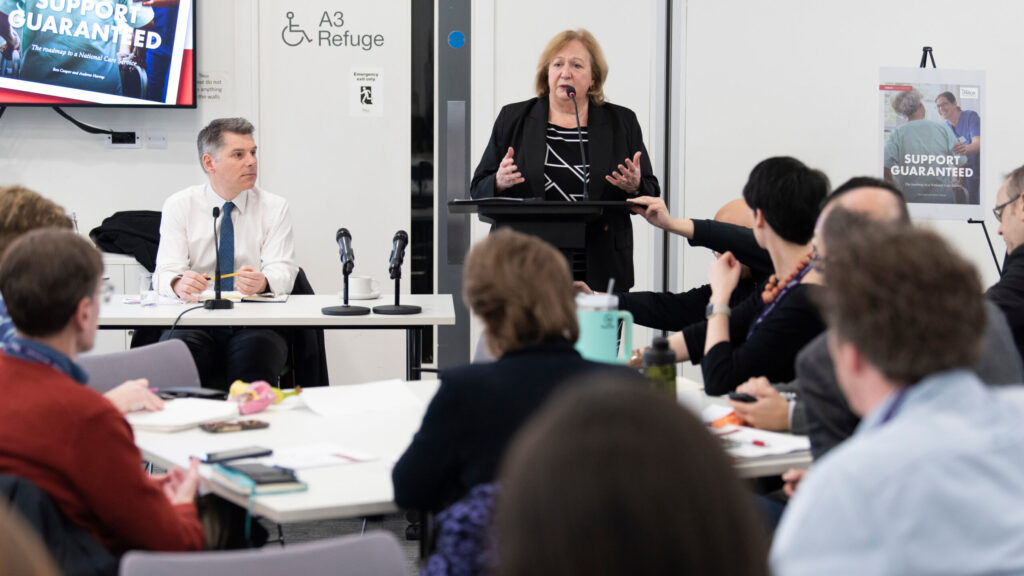
Christina McAnea welcomes attendees to UNISON centre
“UNISON is delighted that the report we commissioned from the Fabians, Support Guaranteed, has become such a focus for the care sector, and a reference point for how a future government might bring about a national care service.
“[The report] has meat on the bones, detail, timescales and milestones and it reflects the wide consensus in the sector that a new workforce settlement has to be a priority.”
Referencing the wide range of stakeholders in the room she said: “The hope for a national care service continues to gain momentum. Not just in the Fabians’ report, but also in the pledge campaign that UNISON launched last week, and in the Labour Party’s national policy forum process.
“The Labour Party has stuck to its pledge of a national care service, and I look forward to hearing from Wes Streeting [shadow secretary of state for health and social care] and Andrew Gwynne [shadow social care minister] later in the summit.”
She continued: “It’s time to end the sticking plaster approach we’ve seen so far, where ministers make announcements that try to fix a tiny element of the sector. It’s time for us to be ambitious about what we want from a care service.
“A national care service, to boost the standing of the sector, to give people the care and support that they and their families need, and to give care workers the reward and respect they deserve.
“And when the day comes, when a national care service is made a reality, we can meet again, and say: ‘we did that, we made that happen’.”
Andrew Harrop, general secretary of the Fabian Society, then set the scene for attendees, saying: “Today, in this summit, we want to bring all of you together to debate where we are. To find out where there is consensus and where there is friction.
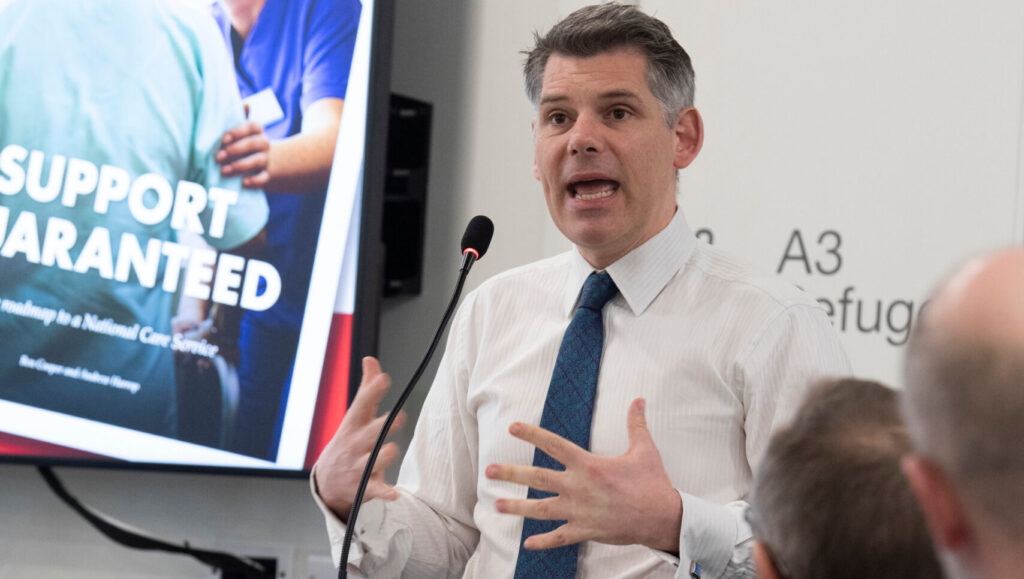
Andrew Harrop sets the scene
“To think about all the many proposals that have been suggested, not just Support Guaranteed, but all the good work that has been done in social care over the past few years.
“We want to pivot the conversation from ‘will there be a national care service?’ and say, ‘there will be a national care service, but what should it look like?’” He continued by noting that this involves stress testing current Labour Party commitments and looking at what other essential reforms are required.
Attendees then heard short speeches from several key stakeholders including Sean Davis, the chair of Local Government Association, Caroline Abrahams, the charity director of Age UK, and UNISON support worker Sam Thornton.
Speaking of her personal experiences over a 33-year career in the sector, Ms Thornton said: “Things have to change, because we are failing the most vulnerable people in society”.
She highlighted the importance of professionalisation in the industry. “Every year we do huge amounts of training, and with a national care service, hopefully this training will be recognised and we will be banded properly like our NHS colleagues.”
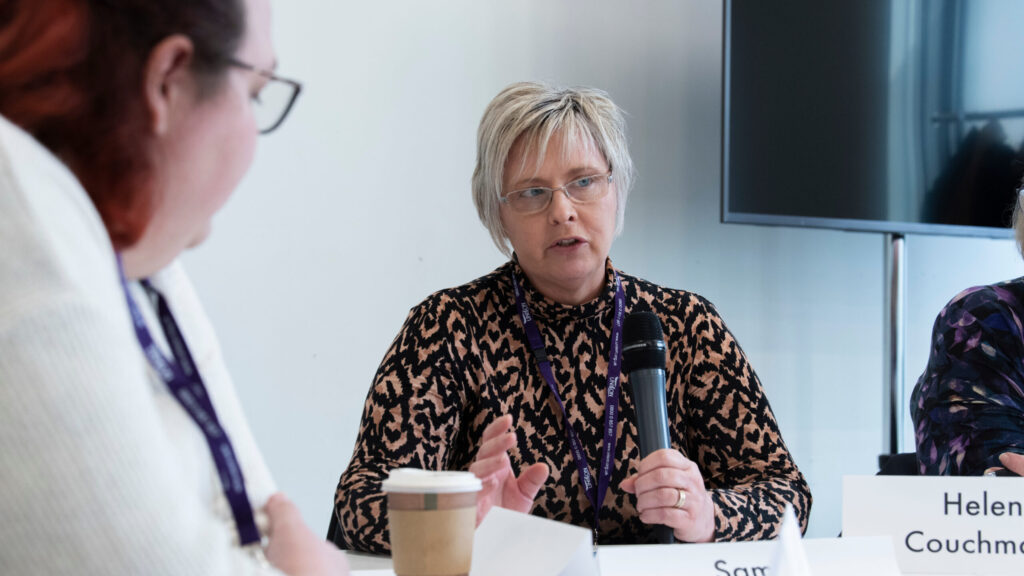
Sam Thornton gives attendees a workforce perspective
She said this meant proper routes for progression, appropriately rewarding workers based on their experience and skill levels and, fundamentally, setting out a fair pay agreement for the entire sector.
In the afternoon, Wes Streeting and Andrew Gwynne both spoke of Labour’s commitment to a national care service.
Mr Streeting said: “If we’re [Labour] serious about meeting our ambitions on social care or the NHS or any of the other great missions that will define the next Labour government it’s going to take a decade of renewal … not overnight fixes.”
He spoke of the need for a “ground-breaking fair pay agreement” and the need “to professionalise the social care workforce”.
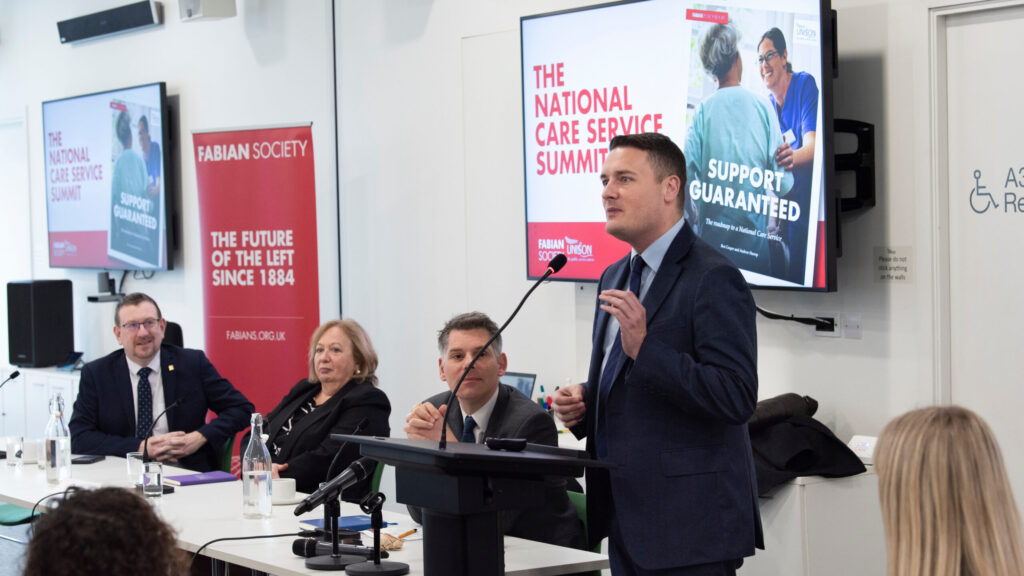
Wes Streeting speaks to attendees about Labour’s policy commitments
Meanwhile, Mr Gwynne told attendees: “We have an opportunity to transform people’s lives”.
He continued: “I see the NCS as being ‘the what’. ‘The how’ – how it’s delivered – has to be down to the local system, and we have to allow for innovation and we have to involve all different parts of the social care sector, including the users.
Speaking on the chronic low pay of workers in the care sector, he said: “We need to value the workforce more than we do at present.” He added that to do this, Labour needs to fix the perception of the profession as “low-skill, low-wage and bottom-rung” and that creating a career pathway in care is going to be key to a national service.
The event then split into roundtable discussions with debate on several topics: workforce; national and local; rights and voice; prevention and access; providers and models of support.
Speaking just before the close, Ms McAnea thanked attendees and said: “We may have different views, but we all want the same thing – a fairer society.
“We are absolutely on the right side of history here, and the history books will say that in the future and that debate about how we create a fairer society starts here with a working national care service.”
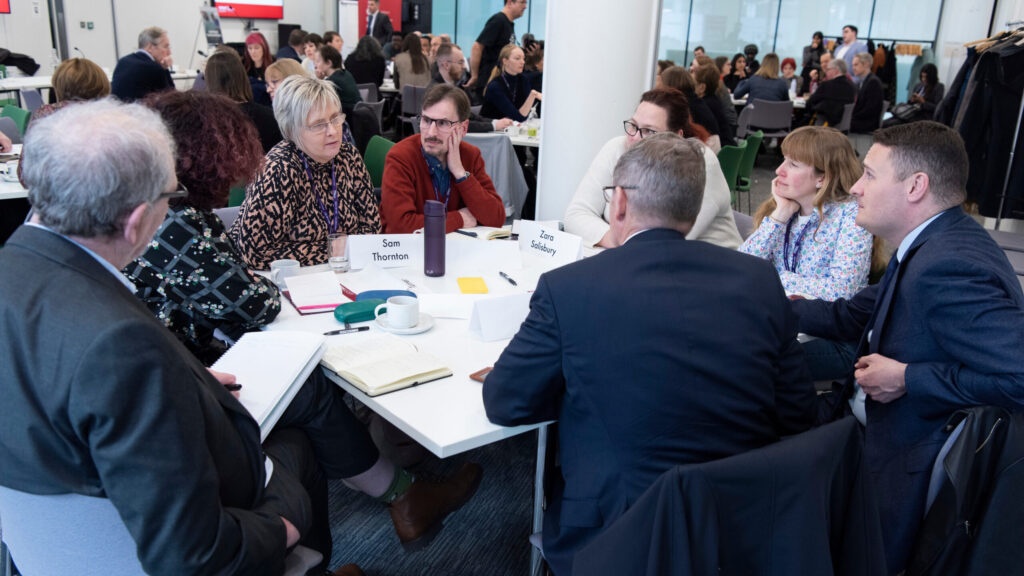
Sam Thornton speaks to stakeholders, including Wes Streeting, in the roundtables
The article Making a national care service – from roadmap to reality first appeared on the UNISON National site.








